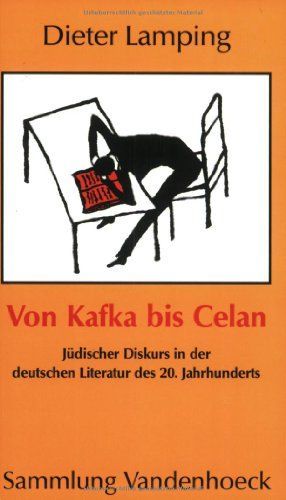
Von Kafka bis Celan jüdischer Diskurs in der deutschen Literatur des 20. Jahrhunderts
Traces the history of 20th-century Jewish literature in the German language, particularly with respect to the writers' attitudes to their German and Jewish identities and to antisemitism and the Holocaust. Examines the legacy of Heine, whose homelessness was viewed by some as the universal state of the poet, by others as the fate of the Jew. Observes that Kafka dealt extensively with Judaism and antisemitism in his diaries but not in his literary works. Notes that much of the best of Weimar literature was written by Jews. The Nazis execrated them, not only as Jews but as the leading representatives of modernism in Germany. Discusses wide variations in Jewish writers' understanding of exile and their changed relation to Germany. Analyzes Celan's "Todesfuge", stressing the opposition between Jew and German, and Grete Weil's efforts to cope with her German-Jewish identity. The postwar German literary avantgarde took almost no notice of Jewish writers, and Jews and the Holocaust hardly appear in their works on the Nazi period until Alfred Andersch's "Efraim" (1967). Describes the work of Jewish writers in Germany today as a "minority literature".